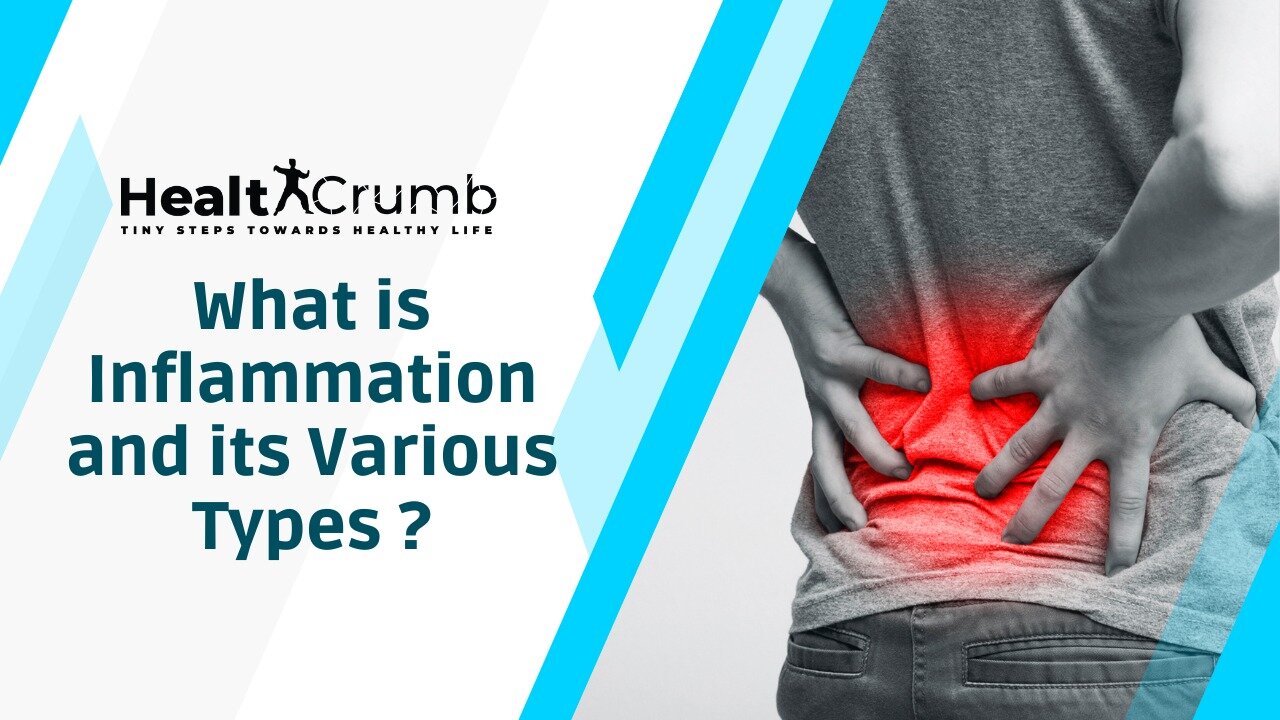Inflammation is a process by which the body’s white blood cells and substances they produce protect us from infection with foreign organisms, such as viruses and bacteria. There are four main types of inflammation: acute, chronic, septic, and autoimmune. Each type has its own set of symptoms and causes. In this blog post, we will explore the different types of inflammation in more detail. From acute to chronic to septic to autoimmune, we will cover everything you need to know about this important topic.
What is Inflammation?
It is the body’s response to injury or irritation. The inflammatory response is a complex biological process that involves the release of various chemicals and signals that help protect the body from harm.
It is a biological response to many different stimuli, including but not limited to infection, heat, trauma, or foreign bodies. The inflammatory response is characterized by redness, swelling, and pain. There are several different types, each with its own unique set of symptoms and causes.
Symptoms
There are a variety of symptoms that can indicate inflammation. Some of the more common symptoms include:
- redness
- swelling
- heat
- pain
- loss of function
These symptoms can range from mild to severe, and in some cases, can lead to serious health complications. If you experience any of these symptoms, it’s important to see a doctor to determine the cause and get proper treatment.
The Different Types of Inflammation
Inflammation is the body’s response to injury or irritation. The inflammatory response is a complex biological process that helps the body heal and protect itself from further damage.
1. Acute inflammation is the most common type of inflammation. It occurs in response to an injury or infection and is characterized by redness, swelling, heat, and pain. The inflammatory response begins within minutes of the injury or infection and peak within a few days. It is a natural and necessary part of the healing process.
2. Chronic inflammation occurs when the inflammatory response does not resolve properly and persists for long periods of time. This can be caused by an infection, an autoimmune disease, or other conditions such as obesity or smoking. It can lead to tissue damage and chronic diseases such as heart disease, cancer, and arthritis. It is a long-term form of low-grade inflammation that can last for months or years.
3. Autoimmune inflammation occurs when the immune system mistakes healthy cells for foreign invaders and attacks them. Autoimmune diseases such as rheumatoid arthritis, lupus, and Crohn’s disease are characterized by chronic inflammation.
4. Neurogenic inflammation is caused by nerve damage or injury. It can occur in response to an injury or disease that damages the nervous system. It is characterized by pain, redness, swelling, and heat.
5. Septic inflammation is a potentially life-threatening form of inflammation that occurs in response to an infection by bacteria or other pathogens.
There are also two less common types: chemical and immunological.
- Chemical inflammation is caused by exposure to irritants or allergens, such as poison ivy or bee stings.
- Immunological inflammation is caused by an overactive immune system response to something that is normally harmless, such as pollen or dust particles.
Causes
There are many different causes, but the most common cause is tissue damage. When tissues are damaged, they release chemicals that signal the body to start the inflammatory response. This response is a way for the body to protect itself and heal the damaged tissue.
Other common causes of inflammation include:
- Allergies
- Infections
- Autoimmune diseases
- Certain medications
There are many different causes, but the most common cause is due to an infection or injury. When your body is injured, your immune system kicks into gear to repair the damage. This process usually involves swelling, redness, and warmth at the site of the injury.
In some cases, inflammation can be caused by an autoimmune disease, where your body’s immune system mistakenly attacks healthy tissue. This can lead to chronic inflammation and a host of other symptoms.
Other less common causes include certain medications, foods, and even stress.
Treatment for Inflammation
There are a variety of ways to treat inflammation, both through medication and natural methods. Medications typically include non-steroidal anti-inflammatory drugs (NSAIDs), corticosteroids, and immunosuppressants.
NSAIDs work by blocking the production of prostaglandins, which are hormones that play a role in pain and inflammation. Corticosteroids are a type of steroid that can be taken orally, inhaled, or injected directly into the inflamed area.
They work by reducing inflammation and suppressing the immune system. Immunosuppressants are typically used for more severe cases, as they work by suppressing the immune system.
Natural methods of treating inflammation include:
- Cold therapy
- Heat therapy
- Massage therapy
- Acupuncture, and
- Mindfulness meditation.
Cold therapy works by numbing the nerves in the inflamed area and reducing swelling.
Heat therapy increases blood flow to the area and helps to relax muscles.
Massage therapy helps to reduce tension in the muscles and promote relaxation.
Acupuncture is an ancient Chinese practice that involves inserting thin needles into specific points on the body. It is believed to help reduce pain and promote overall health.
Acupuncture can help to release endorphins, which are hormones that can help to reduce pain.
Mindfulness meditation can help to focus the mind on the present moment and reduce stress.
Mindfulness meditation is a type of meditation that focuses on being present at the moment and accepting thoughts and feelings without judgment. It is believed to help reduce stress and promote relaxation.
Prevention
There are a few things that you can do to prevent inflammation. Some of these things are:
- Eating a healthy diet
- Avoiding processed foods
- Getting enough exercise
- Managing stress levels
- Not smoking
- Avoiding alcohol
Final Words
Inflammation is a response that the body has to various stimuli, such as infection, injury, or irritation. It is a way for the body to protect itself and to heal. It has different types, each with its own set of symptoms.



